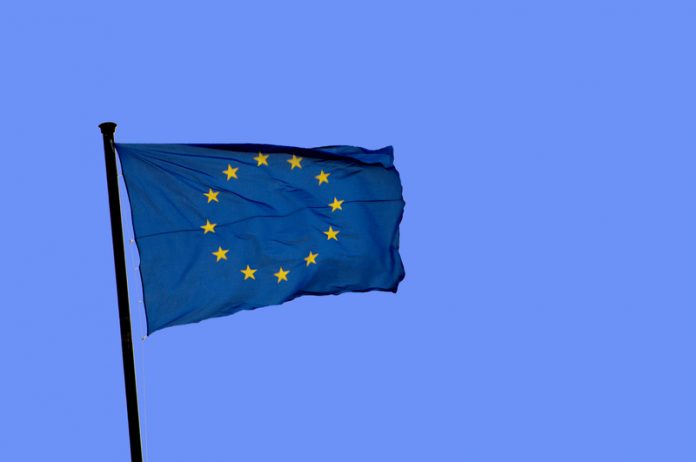R&D commissioner Carlos Moedas is preparing to brief Japan, US, Canada and others about the possible collaboration with the EU’s €94.1 billion R&D programme, Horizon Europe
Argentina, Australia, Brazil, Canada, Japan, New Zealand, South Africa and the US are scheduled to meet with the EU Research Commissioner Carlos Moedas, on 3rd December, in Brussels, to discuss the Commissions biggest-ever R&D initiative worth €94 billion to succeed the current programme, Horizon 2020. The project is expected to start in 2021 and last for seven years.
The group meeting offered by Moedas follows a letter to him on March 6, co-signed by the eight ambassadors, asking for discussions on Horizon Europe. That letter reflected concerns, sources say, that although the Commission has openly invited more collaboration with other top R&D-performing nations, it didn’t spell out how that might happen.
Currently, the vast bulk of the Horizon 2020 money goes to researchers in the EU and its neighbours; from 2016 through 2017, just 0.95% of grants went to researchers from so-called third countries. But Moedas wants to boost collaboration with other wealthy countries, as a way to strengthen European competitiveness in science and technology.
So far, that has proven difficult, with international participation falling due to financial and legal issues. And there are signs of third-country participation in Horizon Europe could be even more constrained, with some European politicians pushing to make it a “Europe first” initiative.
The Commission claims its programme is the most open in the world to international collaboration, citing collaborative partnerships such as developing tropical medicines with African researchers, or agriculture and biotechnology research with China. However, collaboration with the EU is not always as simple and easy for scientists in rich countries.
If unable the demonstrate that they have unique knowledge that their European partners needs then they normally need their own funding to join a Horizon project. But this is not something that they tend to be keen on, due to the budget constraints in their home counties. Even though’s with the money, face a number of legal and contractual complications which have deterred some non-EU universities and research institutions.
However, recently rich counties have been able to formally “associate” with the programme, meaning their governments contribute some funding and their researchers can bid for Horizon money alongside Europeans. Sixteen countries, including Switzerland and Norway, already have this status.
Exploring these terms have been hampered due to Brexit as the UK has said it wants to associate to Horizon Europe after it leaves the EU, but EU Brexit negotiators banned any discussion of what those terms might be, for fear of complicated the main Brexit deal.
So far, the most detailed public discussion of possible terms is in the draft Horizon legislation. It says third-country associates must have “good capacity” in science and technology, and a “commitment to a rules-based market economy, including fair and equitable dealing with intellectual property rights, backed by democratic institutions” – suggesting China, for instance, might be ineligible.
If third countries join Horizon Europe, the draft legislation says there has to be “a fair balance” between how much they pay into the programme and how much they get out. The Commission can also pick and choose which parts of the programme are involved.
As things stand scores of questions remain unanswered, such as the specific rules for intellectual property, accounting, legal disputes, data privacy and more. Not surprisingly, all this uncertainty has been raising tempers among science diplomats. Beyond the non-EU delegates, representatives of Switzerland, Norway, Israel and some other countries already associated with Horizon 2020 have been fretting their own deals may suffer, as the Commission tries to accommodate the British, Canadians and others.
On 14 November, the UK-EU negotiators published their draft Brexit withdrawal agreement and political statement on the future relationship, freeing Commission R&D officials to start talking more openly to other governments. Then, on 20 November, Commission staff gave a briefing on Horizon Europe to embassy science counsellors in Brussels.
The Moedas meeting on 3 December is the next step. There, the Commissioner is due to brief the ambassadors on international participation in Horizon Europe. The ambassadors are expected to counter with their own governments’ opinions about the programme, the headlines of which were included in their joint letter in March.
In it, the ambassadors wrote that Horizon Europe – also known as Framework Programme 9 or FP9 – “should continue to focus on developing scientific excellence in Europe and, at the same time, enhance mutually beneficial partnerships with the rest of the world.”
The letter urges the Commission “to consider the systems and framework conditions that support international collaboration with our respective countries on research and innovation, allowing European researchers to work with the most appropriate actors worldwide and with the aspiration of making FP9 truly open to the world. Recognising that our respective research and innovation systems differ, this would include continued simplification and greater flexibility of programme administration, along with active support for third country participation in FP9.”
In the end, it’s an open question whether any of the eight countries will associate with Horizon Europe.
References:











